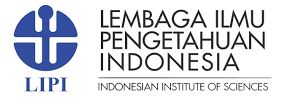The Role of Ad Informandum in Indonesia’s Judicial System: Perspectives on Ethics, Procedural Law, and Human Rights
Abstract
This study examines the legal and ethical dimensions of ad informandum—the submission of third-party information to judges within Indonesia’s judicial process. Although not explicitly regulated in procedural law, ad informandum has gained relevance in cases involving public interest and human rights, raising questions about its legitimacy, consistency, and impact on judicial integrity. Using a normative juridical research method combined with a comparative perspective on amicus curiae practices, this study analyzes statutory provisions, court decisions, and academic literature to clarify the position of ad informandum in Indonesia’s legal system.The findings indicate that ad informandum contributes to more informed and transparent judicial reasoning but remains normatively fragile due to the absence of procedural recognition and ethical safeguards. Without a clear legal basis, its use may lead to inconsistency or compromise due process principles. The study concludes that establishing explicit procedural guidelines for ad informandum would enhance accountability, ensure fairness, and align Indonesia’s judiciary with international human rights and judicial ethics standards. This contributes to the broader discourse on judicial reform and the integration of ethical reasoning in adjudication.






1.png)






.png)
















